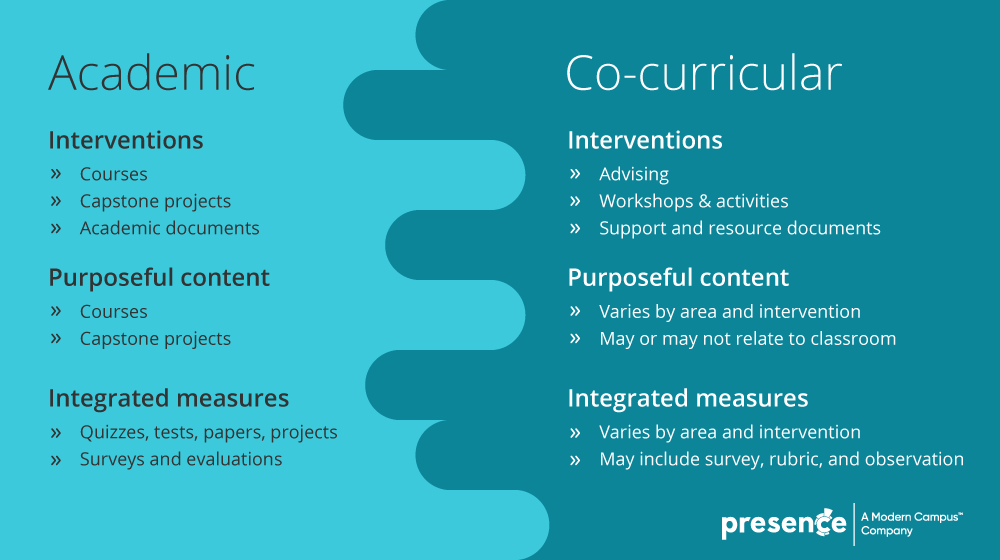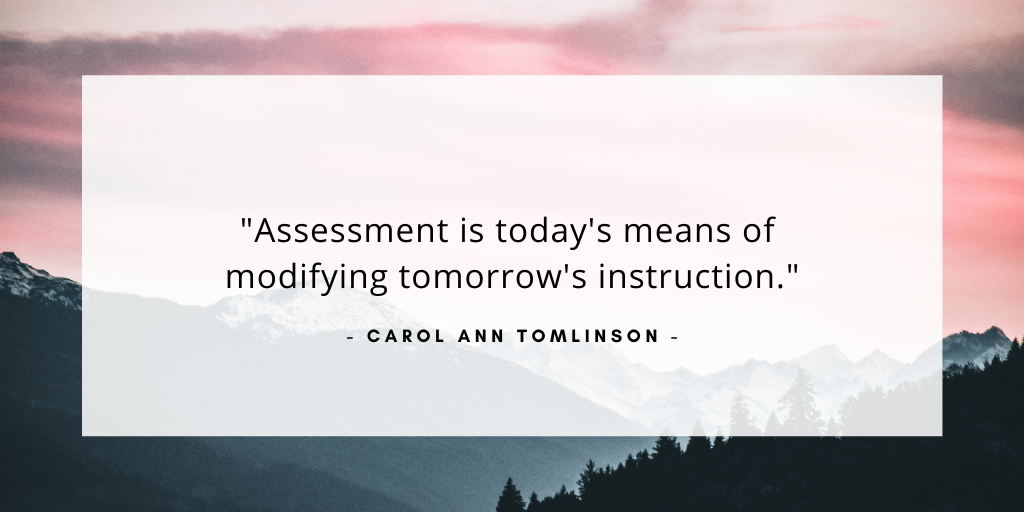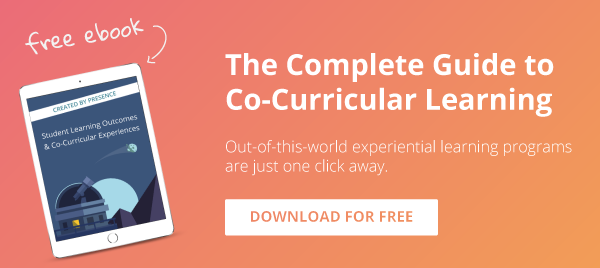The importance of assessment should not be lost on any student affairs professional.
If it’s viewed as merely a nice-to-have activity at your institution, then you need to help reprioritize. Assessment is one of the most cited areas of concern or deficiency for accreditors and quality assurance entities. More specifically, institutions are often cited by accreditors for the lack of engagement or insufficient evidence of co-curricular and student affairs assessment.
I’ve encountered far too many student affairs professionals who do not believe that their work impacts their students’ learning. I remind them that learning involves any change in knowledge, skills, or behavior — not just classic academic learning. If your area or office engages with students in any way, then assessment of student learning includes you!
Some areas may be more transactional and the learning outcomes may be pretty narrow or limited, but that’s ok. Every area plays a different role in the student experience, and assessment should be bounded by the scope of an area’s work.
It is worth pointing out that assessment for student affairs shouldn’t be all that different in its approach than efforts undertaken by academic affairs.

Academic affairs departments typically conduct specific learning interventions, including courses, capstone projects, and academic documents. These interventions contain and are guided by purposeful content, including curriculum, or college- or degree program-specific information. The interventions have integrated measures for assessment that include quizzes, tests, papers/projects, surveys, and evaluations.
Student affairs should also have interventions, purposeful content, and integrated measures to promote learning. Interventions can include advising sessions, workshops, support services, and more; the purpose varies by office and content may or may not directly relate to classroom learning. Student affairs professionals can conduct assessments of learning through surveys, rubrics, observations, and more.
It’s typical for institutions to measure operational elements of student affairs (such as needs, satisfaction, usage, quality). Proper assessment of student learning should measure student actions, behaviors, and knowledge. Ideally, there should be a balance here. Learning doesn’t happen in a vacuum and the operational elements can provide important context.
As an example, imagine if you held an event and had evidence of students demonstrating mastery of the expected learning outcomes, but only two students participated. This may be affirming learning outcome data, but that is tempered by the small sample size. And from an operational perspective, this may be especially disappointing if resources were allocated for an event designed to attract a large attendance.
Alternatively, you might know that 200 students attended an event but have no data on whether they learned anything. In other words, you have helpful operational information but no insight on learning outcome achievement.
Ideally, you would want to have both operational data and learning outcome data so you can think about actions for improvement for the event and the intended outcomes for students.
It’s important to remember the purpose and intention of assessment work; you should strive to engage and be informed by the process and not get bogged down or intimidated by the details.
Institutions have to do more than share their intentions, however. If we only did that, then it would be all too easy to assume that everything is going according to plan without measures of quality assurance.
And even when quality assurance is done on the front end or in relation to operations, those efforts do not account for whether student learning occurred. As such, we need to find evidence that our inputs, intentions, and assumptions are having the outputs, outcomes, and realities we anticipated.

I strongly push back on student affairs folks who argue against the relevance of assessment in general or against dedicating more resources to it. While assessment can often be improperly rolled out in practice or misunderstood by those involved, it’s meant to be useful, inform about effectiveness, and be meaningful to those involved. I’ve yet to encounter anyone – faculty, staff, administrators, external stakeholders, students – who didn’t want to or need to answer the following questions (from Upcraft and Schuh):
- How can we be better stewards of resources?
- How can we improve quality where necessary?
- Are we providing needed support for student success?
- How can we articulate what we do to outside parties?
- What are our students learning?
Those questions are seemingly relevant to all higher education professionals, but I especially share them here because assessment can provide the answers, complete with evidence!
Good educational practice calls for data-informed decision-making and to know if our work is having its intended impacts. Assessment of student learning data is not the only data set you need to guide strategic decisions (you should also be looking at operational data, budget, institutional goals), but assessment of student learning needs to be part of key metrics and student success stories for institutions.
Checklist for your Campus
Whether this blog post is motivating you to jumpstart assessment within student affairs or you’ve been doing it for a while now, below are some great reflection questions that can inform your overall strategy and goals:
Establishing expectations
- What do we hope students learn or experience?
- What do students want to learn or experience?
- How do we bridge any gaps between our hopes and students’ wants?
- How can we best measure student learning and success?
Exploring your barriers
- What barriers are encountered in assessment?
- How can assessment be more meaningful or useful to your office?
- What can we do to better engage audiences, including students, staff, faculty, and the external community?
Seeking honest feedback (especially from students)
- What can we do better to meet all students’ needs?
- What additional representation of perspectives and identities should be included in assessment activities at our institution?
- How can we further amplify student voices and needs?
Leadership reflection
- How can we go beyond merely encouraging participation to instead be promoting effective engagement in assessment?
- In what ways could we better model and emphasize being data-informed to stakeholders?
- How might we use recognition and rewards as motivation for stakeholder involvement?
- Everyone who directly engages with students and hopes to change student knowledge or behavior has a responsibility to assess learning. And even if assessment is not officially part of your role or regarded as a responsibility by your supervisor, designing and delivering programs to effectively serve students is part of your job. With that in mind, the best way to know if you’re serving students effectively is through assessment and evaluation.
We owe it to our students to make sure the services and experiences we offer are having their intended impacts. That’s something I remind folks who push back on assessment as being their personal responsibility: making sure to design and deliver programs to effectively serve students is your job. And how do you plan to evaluate whether or not you are delivering on that responsibility?
Assessment becomes a matter of fidelity to our work. It is important to measure and reflect on the results of interventions through assessment, seeking to make changes in hopes of an improved learning environment for students.
If you are looking for more resources to get started, check out these additional blog posts:
- creating learning outcomes
- considerations when crafting assessment questions
- considerations for online assessment
- techniques for prioritizing data needs
- using assessment to advance equity

And if you’re further along on this journey, I encourage you to share what has been helpful to you in advancing your practice. Connect with us on Twitter @themoderncampus and @JoeBooksLevy.





